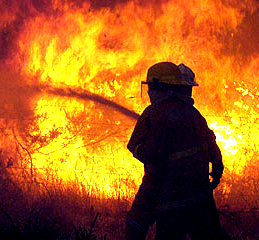Councils fear safety charges
 Local governments are concerned about new workplace laws for volunteer firefighters.
Local governments are concerned about new workplace laws for volunteer firefighters.
In the wake of a volunteer firefighter’s tragic death while combating a blaze on Western Australia's south coast, local councils have voiced apprehension about potential legal ramifications under the updated workplace health and safety statutes.
The primary concern revolves around the possibility of shire chief executives being held personally accountable for volunteers' deaths, with penalties under the new laws including charges of industrial manslaughter.
The incident, which saw 20-year-old firefighter Harry Stead fatally injured after falling from a vehicle on December 26, has highlighted the broadened scope of the 2020 workplace health and safety laws.
These laws now encompass industrial manslaughter, stirring unease amongst those who manage volunteer firefighter brigades.
Goldfields Voluntary Regional Organisation of Councils (GVROC) fears that Esperance Shire chief executive Shane Burge could face legal consequences for actions beyond his control during the firefight.
Sally North, acting WorkSafe commissioner, says that while it is feasible for council CEOs to be charged with industrial manslaughter, such a prosecution would necessitate fulfilling several criteria under WorkSafe's Prosecution Policy.
“It is possible, but only if all elements of WorkSafe's Prosecution Policy are met, including prosecution being in the public interest,” North says, emphasising the complexity of such legal actions.
This legal uncertainty has led to hesitancy among local government officials regarding the dispatch of volunteer firefighters.
Dundas Shire's CEO, Peter Fitchat, has expressed his reluctance, saying; “I'm personally held responsible. So from our point of view, it's a 'no' deal.”
Legal experts say the increased consequences under the new law potentially affect not just CEOs but also other decision-makers within fire management.







 Print
Print